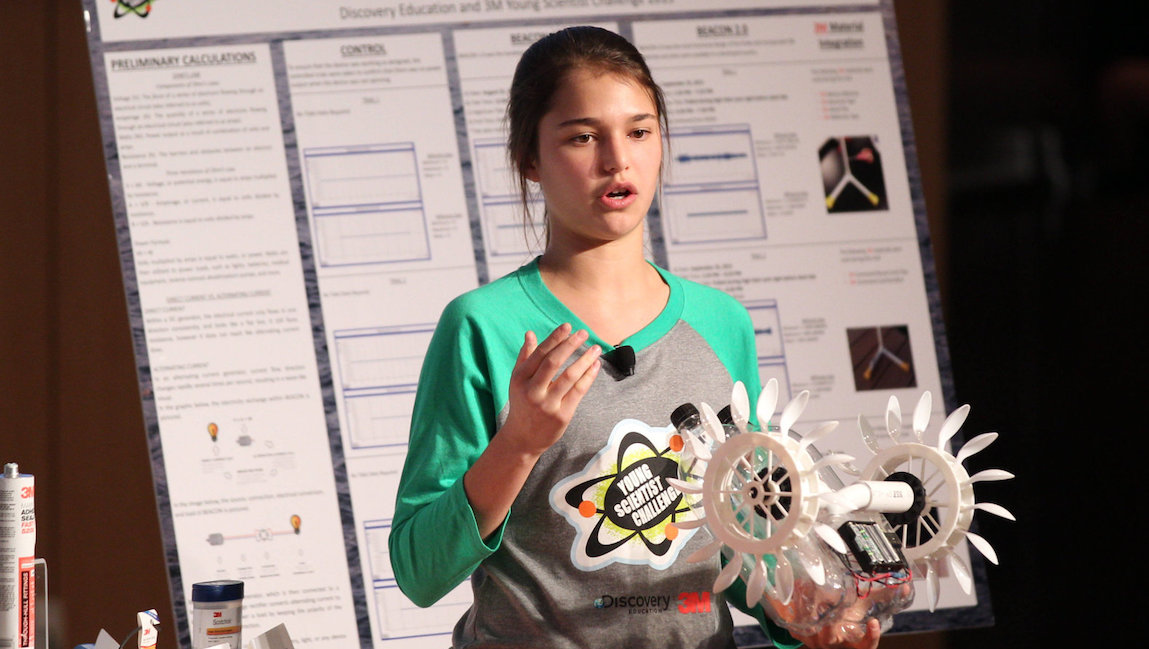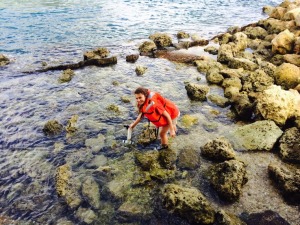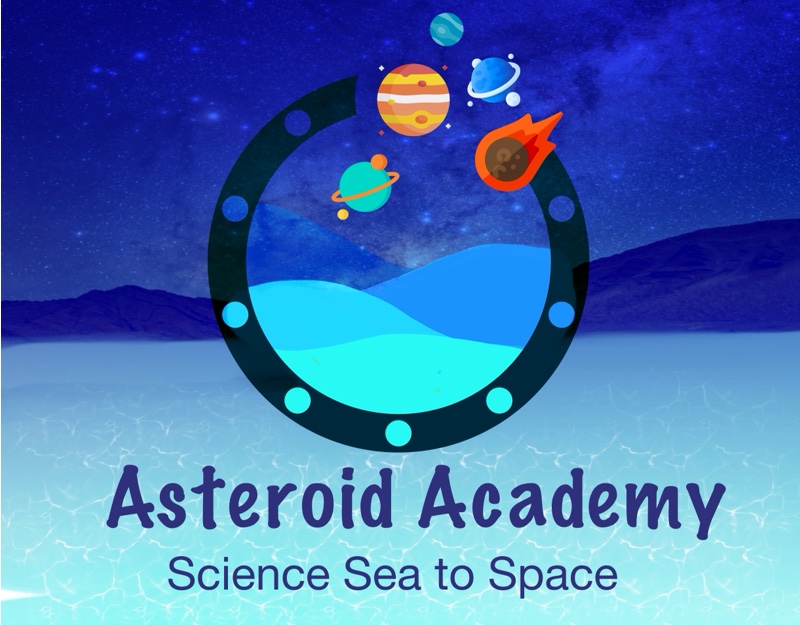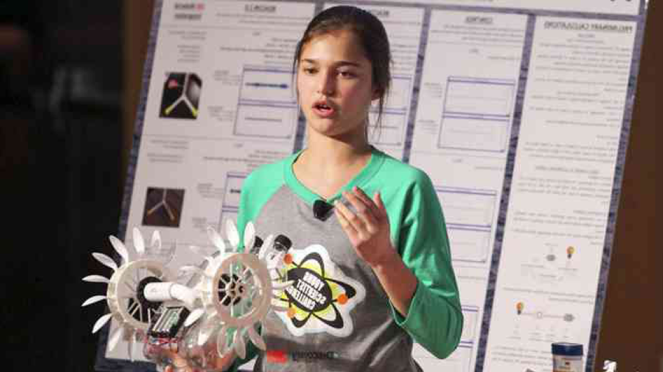
Young Scientist Spotlight: Hannah Herbst
In 2015, Hannah Herbst was an eighth-grader in Boca Raton Florida. She got a letter from a nine-year-old pen pal in Ethiopia who had no access to lights, a steady flow of fresh water to drink, and other necessities.
 Herbst spent four months researching her idea before she designed the turbine as a computer model, and then produced 3D-printed prototypes, which only cost $12 to make. Ocean tidal energy drives the propeller at the bottom of the probe, which then powers the hydroelectric generator at the top of the probe via a pulley system inside, turning ocean tides into usable power.
Herbst spent four months researching her idea before she designed the turbine as a computer model, and then produced 3D-printed prototypes, which only cost $12 to make. Ocean tidal energy drives the propeller at the bottom of the probe, which then powers the hydroelectric generator at the top of the probe via a pulley system inside, turning ocean tides into usable power.
She called it BEACON (Bringing Electricity Access to Countries Through Ocean Energy Collection), and won the Discovery Education 3M Young Scientist Challenge, along with $25,000. Although the turbines wouldn’t be enough to power a city, they could be used in developing countries to power pumps to desalinate water or run centrifuges that help test blood for diseases.
Since inventing BEACON, Hannah has continued with her passion for science. In 2018, she made the Forbes 30 Under 30 list. In 2019, she graduated from Florida Atlantic University High School, and in 2020, she’ll finish her bachelor’s degree at Florida Atlantic University. She even gave a TEDx Talk titled “What i learned from building robots with boys.” Who knows what she’ll do next?
Want to follow her on Twitter? https://twitter.com/hannahherbst07?lang=en
Curriculum Reference Links
- Physical World / Systems and Interactions / 4: Students should be able to research and discuss a technological application of physics in terms of scientific, societal and environmental impact
- Physical World / Sustainability / 8: Students should be able to research and discuss the ethical and sustainability issues that arise from our generation and consumption of electricity
- Earth and Space / Energy / 6: Students should be able to research different energy sources; formulate and communicate an informed view of ways that current and future energy needs on Earth can be met
- Nature of Science / Science in Society / 10: Students should be able to appreciate the role of science in society; and its personal, social, and global importance; and how society influences scientific research.

